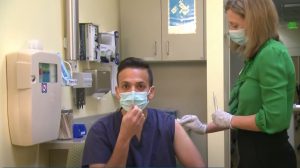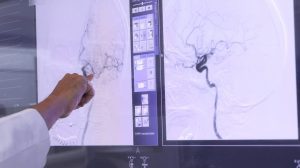NEW YORK (Reuters Health) – Patients hospitalized with severe headache generally experience considerable pain relief at least some of the time when given aspirin intravenously, according to a report in the September 21 issue of Neurology.
Dr. Peter J. Goadsby with the University of California, San Francisco and colleagues note that intravenous lysine acetylsalicylate (aspirin) has been shown effective for treating acute migraine attacks. In the current report, the authors describe their experience using IV aspirin to treat 168 patients hospitalized with severe rebound headache.
Most of the patients (129) had a primary diagnosis of migraine, all but 3 had chronic daily headache, and 159 of them were overusing medication on admission.
The team treated them with open-label administration of IV aspirin with a median of five 1-gram doses.
The retrospective review of patient records showed that the median response in patients with severe headache (visual analog scale [VAS] score 8–10) was -1, in those with moderate headache (VAS score 4–7) was -2, and in those with mild headache (VAS score 1–3) was 0.
While the average pain reduction was modest, patients experienced a 3-point decrease in pain scores 25% of the time, Dr. Goadsby and colleagues note, making IV aspirin “a useful intervention.”
The adverse event rate was 5.9%, and all events were minor. “Careful monitoring of patients with histories of asthma, upper GI bleeding, or NSAID intolerance remains appropriate, but such patients can be counseled that the likelihood of a serious problem arising from the use of IV aspirin is very low,” the authors advise.
Summing up, they recommend further investigation of IV aspirin “in patients with other headache problems, such as status migrainosus, chronic migraine that persists after medication withdrawal, or new daily persistent headache.”
Neurology 2010;75:1098–1103.




